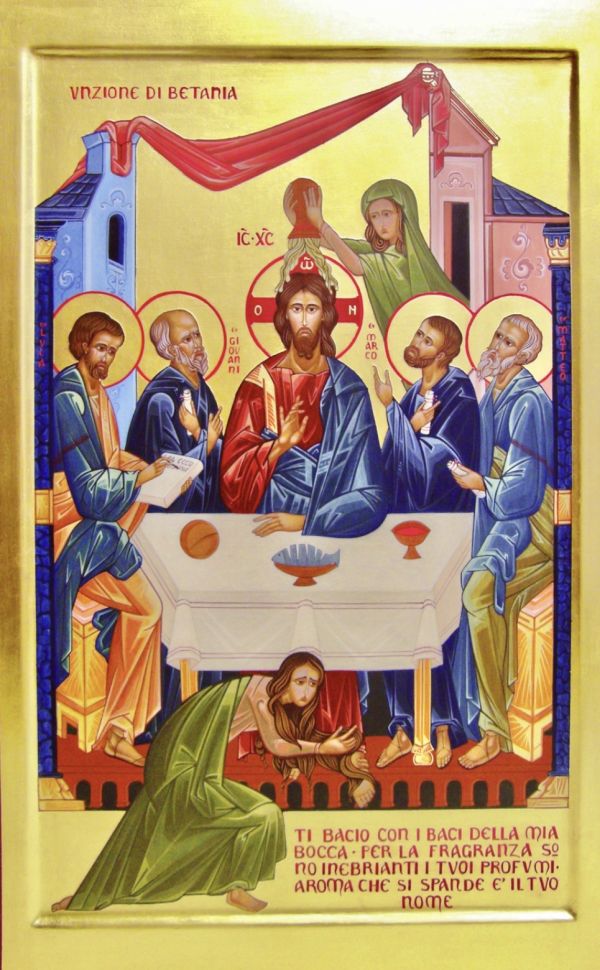Allied Sign. Enchanting Path
(Jn 12:1-11)
As he approaches his 'hour', Christ seems to lose his official features and becomes more and more intimate, within our reach.
His dialogue with men is more interwoven with silent gestures than words.
After yesterday's public day, it is in this way that Jesus makes himself present in the community of family members with no leaders; of brothers and sisters only.
Lord and Master without fuss or triumphs; rather, wanted and forced into hiding.
He is welcomed into a quiet House, that leaves room for emotions, even though an arrest warrant was pending on him.
Church where you can enjoy an air of peace, despite the lack of security - and contrary situations around.
This is how the poor Johannine communities of Asia Minor lived under Domitian - destitute and subtracted from the outward glory, from the hosanna of the crowds. But capable ones of healing both tensions and resistances.
They were small «listening» realities, full of a desire for communion and respectful.
Without too much pressures, they guided the energies in more natural directions. As happens among a few friends.
Climate of conversation and face to face, of wonderfully human and daily life that wants to find a place in us. Where the lesser and unsteady still refresh the Master with delicate homages.
In sharing and mutual understanding, the tiny fraternities made one startle just with daily joy and ‘new life’, transmitted to those who came from all the districts.
They were experiencing Love in simplicity. Empathy that made anyone overcome difficulties and fears.
Friendship that stirred and drew by attraction - in gestures of tender devotion, that released each from attitudes and behaviour that demeaned spontaneity.
Here is the Breaking of Bread: a priceless gesture, beyond social conventions; convincing, because an ‘allied’ free sign.
It did not reject the genuine nature of each person. The Eucharist was not an exclusive fortress.
Even today we can - like Mary - without too much calculation, «anoint the feet» of the Lord: celebrate the Gift of a Way.
The faithful were understanding that their best part could be recognized not in a model circle, but [in purest state] in people with tired feet, and in the Person of that First Coming One always about to depart - by abiding within him.
It meant serving and recognizing oneself, assimilating and consecrating one's own personal journey in that overall one of the Son of God, who became very human and divine Presence, which fills and convinces.
Christ's long Journey is a trace of the ours: from the Father's initiative to the sons’ ability to welcome him, cherish him, venerate him, correspond to him - by simply getting closer to the Roots - and not reject him, if “a loser”.
Here is the homage of friendship.
Only this fills the House of Bethany - the Church that is worth experiencing - with the fragrance of the total and living Christ, and ‘reveals’ him.
Jesus defends the right of love «from within» to express itself freely: where everything becomes possible - even the waste of Gratuitousness that doesn’t weigh the pros and cons.
Without one-sided cunnings, therefore not ruining authentic life and all inner rebirths.
[Holy Monday, April 14, 2025]












